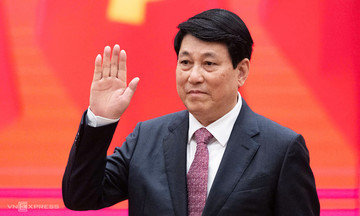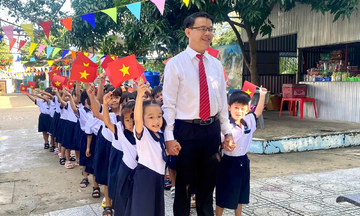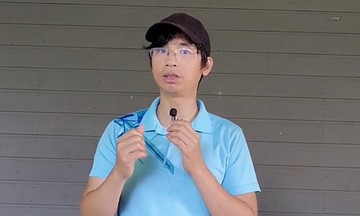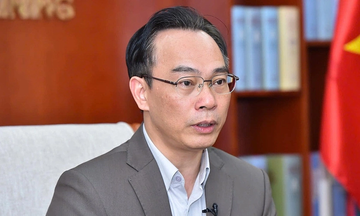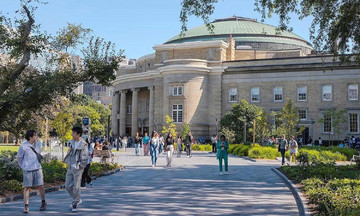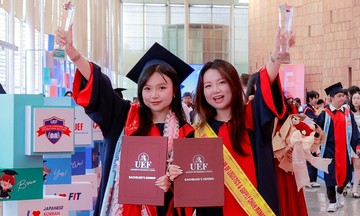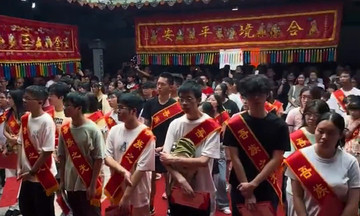Minister of Education and Training Nguyen Kim Son made this statement to VnExpress on the eve of the 2025-2026 academic year.
The first cohort of students has just graduated under the 2018 general education program. There have been positive outcomes, but also concerns regarding subject selection in high school and integrated teaching in middle school. What adjustments does the Ministry plan for this academic year?
The first graduating class under the 2018 general education program has shown several positive points. Students experienced diverse activities, discovered their strengths, chose subjects aligned with career goals, and gained a comprehensive understanding through integrated subjects.
However, the implementation of the new program has also revealed some shortcomings. In high schools, subject selection has been limited by teacher availability and classroom capacity. In middle schools, integrated teaching has faced challenges due to inconsistencies in teacher competency and learning resources.
The Ministry has requested high schools to publicize their elective subject plans and collaborate with other schools to expand student opportunities, supporting students who need to change their chosen subjects. For middle schools, the sector will continue to train teachers in integrated teaching, develop illustrative learning materials, and implement a cluster model where teachers support each other, helping to improve quality and inspire learning.
In the new academic year, the Ministry will conduct a comprehensive review of the new program after one implementation cycle, identifying causes of limitations and proposing solutions for adjustments, ensuring the program is practical, effective, and sustainable.
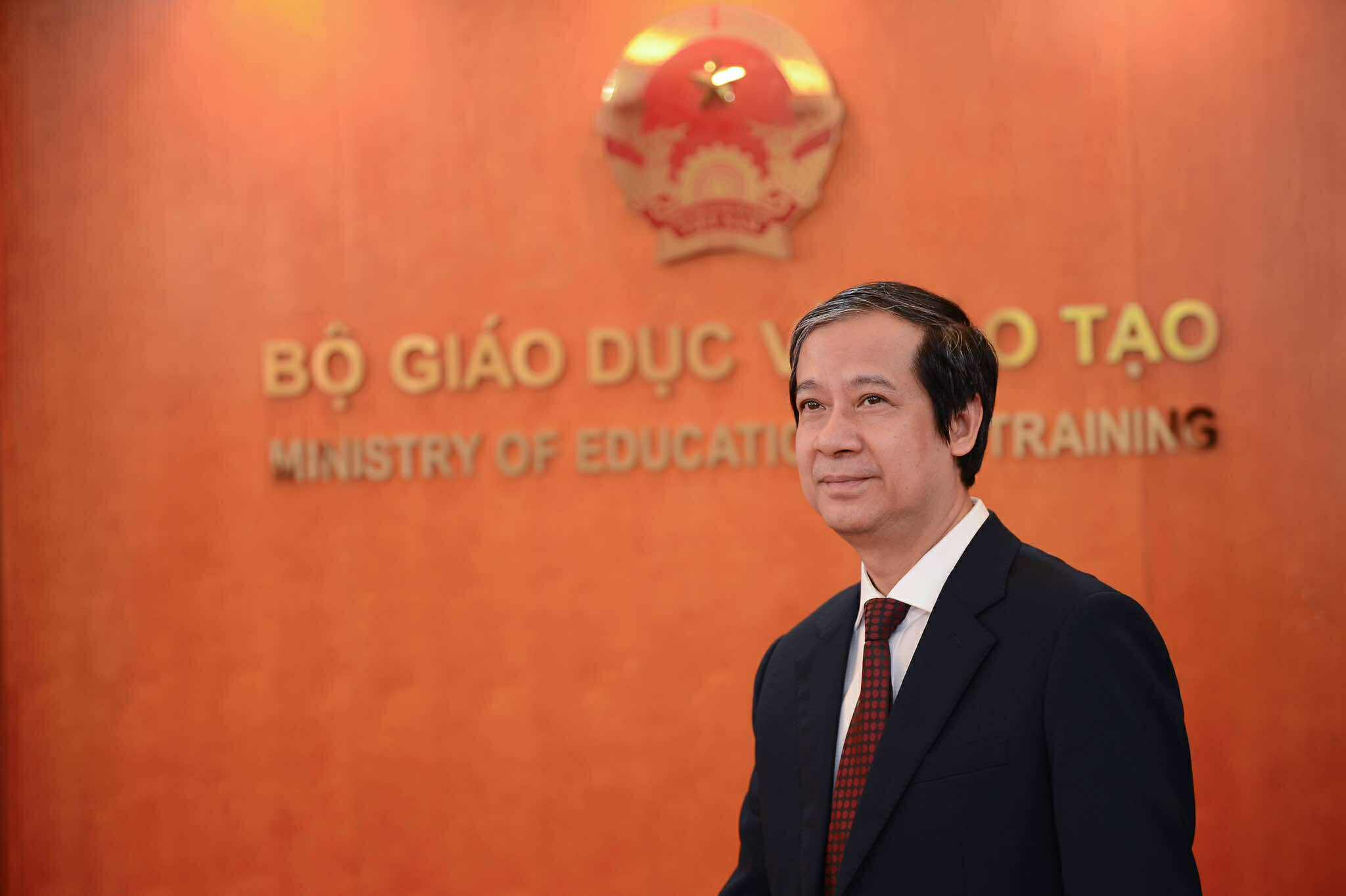 |
Minister of Education and Training Nguyen Kim Son. Photo: MOET |
Minister of Education and Training Nguyen Kim Son. Photo: MOET
Many localities still face teacher shortages. What is the Ministry doing to address this and ensure students can study all subjects according to the curriculum?
In recent years, the continuous increase in student numbers has led to a significant rise in the demand for teachers. The additional teacher requirements in the last two academic years were 13,600 and 22,000, respectively. As a result, many localities still experience teacher shortages.
The main reason is the limited recruitment pool. In subjects like Computer Science, Foreign Languages, and Arts, it is difficult to recruit teachers due to low incomes. Additionally, the process of allocating and recruiting official staff in many localities is slow and prolonged.
The Ministry has directed universities to open relevant majors and train teachers based on local needs, especially in specialized subjects. They have also requested localities to fulfill their assigned recruitment quotas, review and reorganize their school networks, implement policies to attract and support teachers, and allocate funds for hiring contract teachers.
After the first year of the high school graduation exam under the new program, what adjustments is the Ministry planning?
Currently, this is the only national exam for all students, providing a general assessment of high school graduates. Therefore, it's important to maintain this exam to assess the attainment of general education standards across regions and provide national data for research, policy development, and adjustments. The exam results serve as an output of general education and a source of reference for universities and vocational institutions in their admissions process.
In 2027, the graduation exam is expected to be computer-based. The Ministry is preparing the software system and may conduct a trial with over 100,000 students taking the computer-based exam in the coming academic year.
Along with this, the Ministry will complete a proposal for government approval, mobilize experts to develop a standardized exam question bank, and continue to coordinate with the Government Cipher Committee for secure transport and receipt of exam questions.
How will the enhancement of digital competency for teachers and students be implemented?
Digital competency for teachers and students is crucial in the current context of digital transformation. To promote this, the Ministry has issued a Digital Competency Framework for Learners with 6 core competency groups.
The Ministry is also preparing to issue a Strategy for Artificial Intelligence (AI) Transformation in Education, a project to enhance digital and AI competency, and update AI content in the general education curriculum. The goal is to apply AI comprehensively and responsibly, aiming for a modern, flexible, and equitable education system.
Simultaneously, the Ministry is promoting online teaching and testing and fostering the AI ecosystem in education. This will be an important practical environment to help teachers and students develop practical and effective digital skills.
What are the opportunities and challenges for the education sector in the new academic year?
This academic year, the education sector faces unprecedented opportunities. Never before has education and training received such attention and expectation from the Party and State. Most importantly, the Politburo has just issued Resolution 71 on breakthroughs in education and training development. This provides a critical political foundation for further promoting fundamental and comprehensive education reform.
Along with this, a national target program for education development is being developed. Four important laws of the sector (the Law on Teachers, the Law on Education, the amended Law on Higher Education, and the amended Law on Vocational Education) have been and are expected to be issued this year, creating a solid foundation for a modern, synchronized, and effective education system.
Digital transformation, the application of artificial intelligence, and STEM education are also opening opportunities for education to enter a phase of enhanced quality and comprehensive innovation.
However, the operation of the two-level local government model demands high requirements for managing change in the apparatus and personnel. Issues of educational equity, extra classes, teacher recruitment, and transfer are also challenges that the sector must resolutely address.
What is the Minister's message to teachers and students nationwide on the occasion of the new school year?
The 2025-2026 academic year is crucial, with significant tasks to be carried out and many opportunities for innovation. The keyword for this academic year is "implementation". It means focusing on effectively implementing educational policies and solutions. It's also a way for the entire sector to inherit and promote the achievements of the past 80 years, overcome existing shortcomings, and open new paths for Vietnam's education.
Education is a century-long endeavor, requiring vision, perseverance, fairness, and the highest level of responsibility. I call upon the entire sector, from managers to teachers, staff, and all students, to prepare themselves with the best mindset, spirit, and conditions, uniting and joining forces for a busy but joyful and successful new school year.
Thanh Hang




